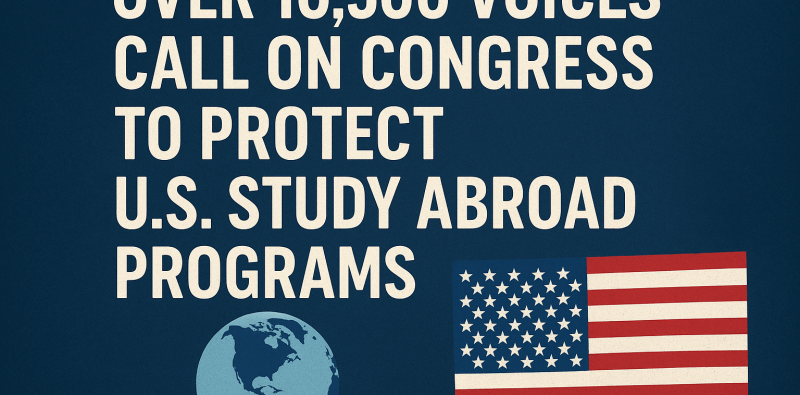
A surge of over 10,500 letters has flooded congressional offices across all 50 states, urging lawmakers to reverse the recent cancellation of key State Department international exchange programs. The move, initiated by the current administration, has sparked widespread concern among educators, students, and advocacy groups, who argue it threatens the future of global education and U.S. diplomacy.
The cuts, affecting 22 programs and totaling $100 million in previously approved funding, were announced internally last week to the State Department’s six regional bureaus. However, the Bureau of Educational and Cultural Affairs (ECA) staff remain in the dark, with no official notice provided, according to sources familiar with the situation. Critics, including former Republican Senate Foreign Relations Committee staff, have labeled the decision “unconstitutional,” pointing to the administration’s override of congressionally allocated FY25 funds.
Leading the charge are two major campaigns spearheaded by the Alliance for International Exchange and NAFSA, which together mobilized the letter-writing effort. The Alliance alone collected 8,500 letters in just four days. “If the Office of Management and Budget (OMB) is allowed to slash these funds, it sets a precedent that could dismantle exchange programs entirely,” warned Alliance executive director Mark Overmann. He noted an encouragingly swift response from Capitol Hill, with ongoing efforts to counter the cuts gaining momentum.
The State Department justifies the decision as part of a strategic review of budgetary priorities. A spokesperson emphasized Secretary of State Marco Rubio’s stance: “Every dollar we spend, every program we fund, every policy we pursue must answer one of three questions: Does it make America safer? Does it make America stronger? Does it make America more prosperous?” Yet, stakeholders fear the fallout, predicting furloughs, layoffs, and even organizational closures, alongside long-term damage to U.S. international relations.
Among the programs at risk is the Kennedy-Lugar Youth Exchange and Study (YES) Program, established post-9/11 to foster ties with youth from predominantly Muslim countries. Also facing the axe are the English Access Program, which has trained 200,000 young people and 7,500 teachers across 85 countries since 2004, and the English Language Fellow Program. The Mandela Washington Fellowship, which has empowered nearly 7,200 young African leaders since 2014, is another casualty, raising alarms about the loss of cultural and diplomatic bridges.
Overmann described the situation as “an existential crisis” for both the affected programs and the ECA itself. As the debate intensifies, the advocacy push continues, with hopes that Congress will act to preserve these vital initiatives that have long strengthened America’s global standing.
